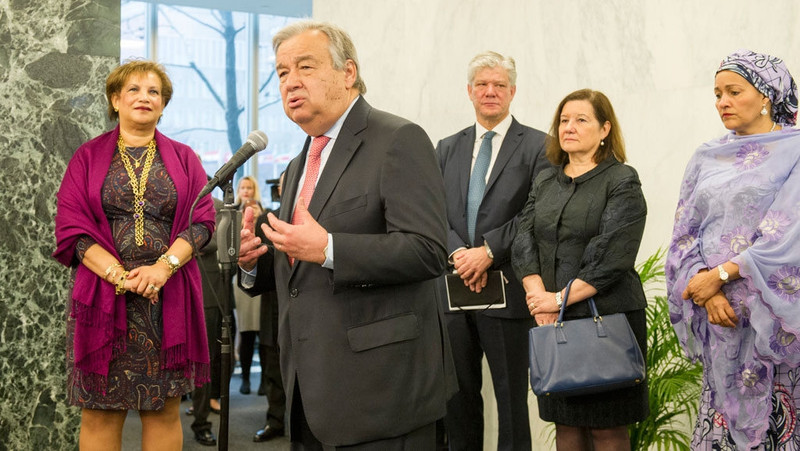Reform of the UN is not a new issue and Guterres is not the first UN leader to mention the goal. However, what impressed observers in his address to staff on January 3 was that Guterres publicly acknowledged the growing scepticism about efficiency in the operation of multilateral organisations, including the UN, as well as UN shortcomings in a call to reform the UN development system and address the shortcomings.
As the world’s largest multilateral organisation, the UN represents the interests of 193 sovereign state nations worldwide. Therefore, the focal role the UN plays, as well as its effort in coordinating cooperation among nations in addressing global issues, cannot be denied. Three pillars of the UN, also its goals and guide, include maintaining peace and security, preventing conflicts and boosting friendship and solidarity among nations; strengthening international development cooperation; and ensuring human rights.
It cannot also be denied that after 70 years of establishment and development, the UN has realised some of these goals. Progresses have been seen in international development cooperation through a series of cooperation programmes such as the Millennium Development Goals, Sustainable Development Goals, and those dealing with crises and conflicts.
However, the peace and security situation, as well as international development cooperation have posed new challenges in recent years at a time when conflicts multiply in some places in the world, inequalities have grown quite dramatically as well as the diseases, natural disasters, climate change and mass migration. The UN seems to get vague in addressing some global issues such as the Syria conflict, Iran’s nuclear programme, and nuclear tests of the Democratic People's Republic of Korea. This the reason for the growing divide and scepticism about what role the UN and multilateral institutions can play.
The UN has also faced difficulties in structures and procedures, and sources of funding, as its operational machinery has revealed shortcomings which made it not able to keep pace with the modern world’s robust development as well as the request to handle new challenges in the new context. The UN has to call on financial funding from sponsors, particularly to assist its humanitarian aid and post-conflict restructuring. In addition, as the UN is funded by its member countries whose contribution is assessed every 3 years and which is based on GNP, the regulation has raised arguments regarding disparities in responsibilities and interests of the contributors.
Reform of the UN with a target to play a greater role in world affairs has been the biggest challenge for the organisation, in which reform of the United Nations Security Council (UNSC) is the major issue which has drawn much arguments. Established after World World II, the UNSC organisation is no longer compatible with a changed world. The proposal of an enlarged Council was made with the argument that the 15-member UNSC representing 193 member states cannot reach the greatest efficiency in addressing peace and security affairs. At the same time, the privileges of the five permanent UNSC members (P5) have raised concerns about the overuse of power by some members in manipulation of global issues. There is also criticism about inequalities between the P5 and non-permanent members.
Although the reform of the UNSC has been raised for such a long time, it has not been put into official agendas and discussions since the issue might have significant impacts on the interests of many countries, particularly the P5, which are prosperous economies with strong defences, and have a voice in regional and international issues. More importantly, any reform of the Security Council would require the agreement of all the P5, which can hardly be reached.
With the new office tenure of Secretary-General Antonio Guterres, the UN entered a new development phase in 2017 as the year marked an important period in realising the 17 proposed sustainable development goals of the 2030 Agenda for Sustainable Development. Therefore, reform of the UN has become more urgent than ever.
However, the new UN chief has a long to-do list at first. The biggest challenge and the top goal he mentioned in his address on his first day at work was the priority on security and peace. This goal was set from the multiplication of crises, prolonged conflicts and the spread of terrorism, which have threatened the world’s security. Alongside, there is a series of unfinished global issues and threats relating to climate change, environment, poverty and migration. The challenges also include building solidarity within the UN family, resolving disagreements among member states and reforming the structures and operations of UN agencies in a bid to regain trust from the international community.
















